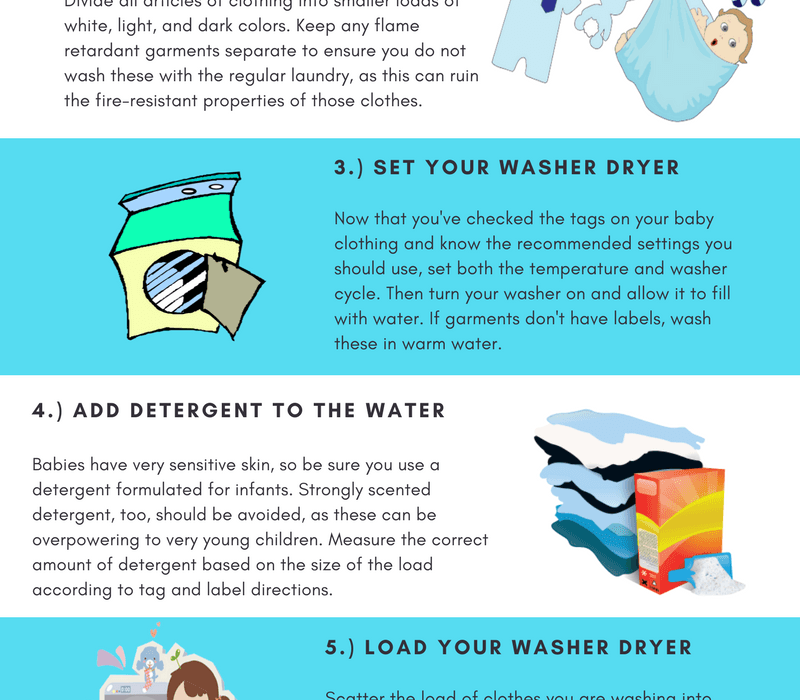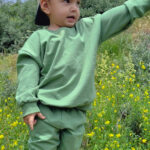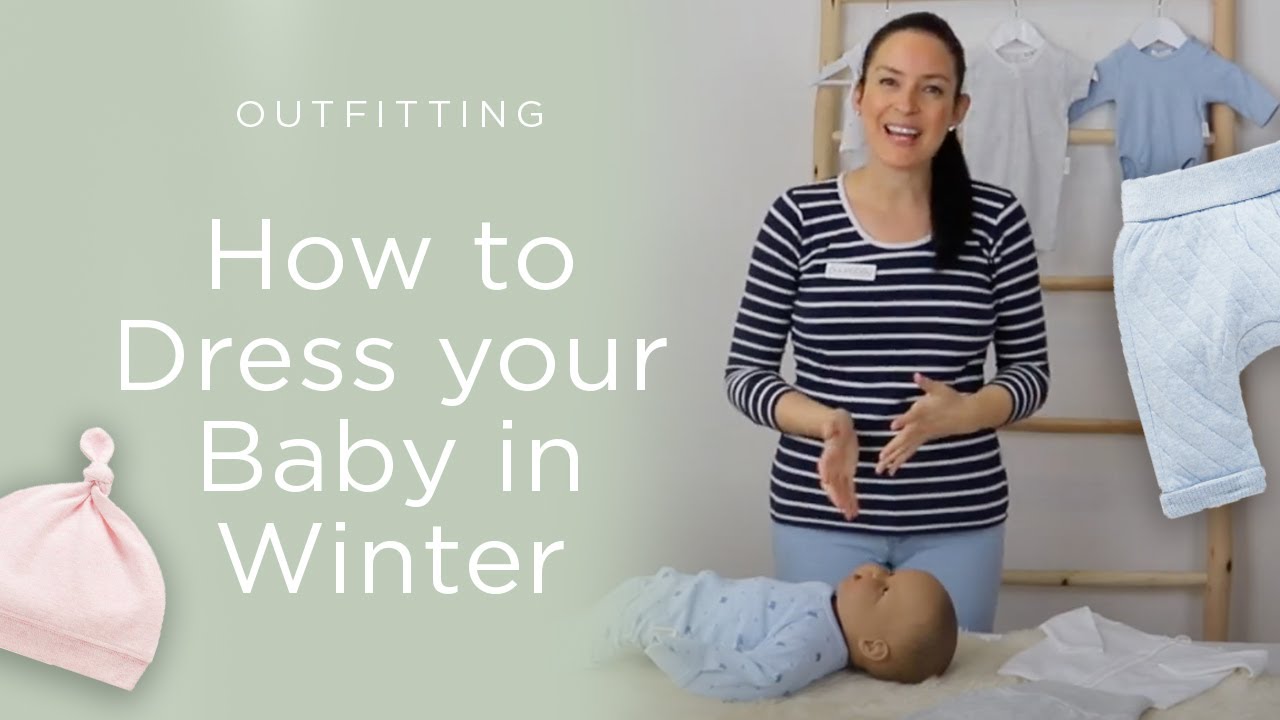To wash newborn clothes for the first time, use a gentle detergent. Wash them separately from other laundry to avoid contamination.
Welcoming a newborn is a beautiful experience. Preparing their clothes is an important step. Newborn clothing often contains chemicals and dyes from manufacturing. Washing these clothes helps remove potential irritants. It also ensures they are clean and soft for your baby’s sensitive skin.
Use a mild detergent specifically designed for infants. Always check labels for washing instructions. Washing newborn clothes separately prevents exposure to harsh substances from other garments. This simple step protects your baby’s delicate skin. With care, you can create a safe and comfortable wardrobe for your little one. Enjoy this special time and ensure your baby is dressed in the best.
Table of Contents
Introduction To Newborn Laundry Basics
Washing newborn clothes is important for keeping them safe and clean. Gentle cleaning is essential because babies have sensitive skin. Use mild detergents that are free from harsh chemicals. Avoid using fabric softeners that may irritate their skin.
Newborn clothes are different from adult clothes. They require special care to maintain their softness. Adult clothing often has stronger detergents and fabric treatments. These can cause skin irritation on a newborn. Always check labels for washing instructions.
It’s best to wash new clothes before your baby wears them. This removes any chemicals from the manufacturing process. Protect your baby’s delicate skin by ensuring clothes are thoroughly rinsed.
Preparing For Baby’s Arrival
Getting ready for your baby means stocking up on supplies. Begin with gentle detergents made for sensitive skin. Avoid strong fragrances and harsh chemicals. Choose softeners that are safe for infants.
Setting up a laundry area is essential. Use a dedicated space for baby clothes. Keep it organized with baskets for clean and dirty clothes. Label everything for easy access.
Remember to wash baby clothes separately. This prevents dirt or allergens from affecting your newborn. Check all labels for washing instructions. Sort clothes by color and fabric type for best results.
Choosing The Right Detergent
Choosing the right detergent for newborn clothes is very important. Use a mild detergent that is free from harsh chemicals. Look for options that are labeled hypoallergenic and fragrance-free. These types of detergents are safer for your baby’s sensitive skin.
Ingredients to avoid include dyes, bleach, and fragrances. These can irritate delicate skin. Always check the label for any harmful substances. Avoid products with phosphates and brighteners as well.
| Recommended Brands for Babies |
|---|
| Seventh Generation |
| Babyganics |
| Dreft |
| All Free Clear |
Understanding Newborn Skin Sensitivity
Newborns have very sensitive skin. This makes it important to wash their clothes carefully. Common irritants can cause rashes or discomfort. These irritants include perfumes, dyes, and harsh chemicals. Always check the label before washing.
Choosing hypoallergenic options is a smart choice. These detergents are designed for sensitive skin. They usually contain fewer chemicals. Look for products labeled as fragrance-free and dye-free. This helps keep your baby’s skin safe.
Consider washing clothes separately. This prevents any cross-contamination with adult clothes. Use a gentle cycle with cold water. Always rinse clothes thoroughly to remove any residue.
Pre-wash Inspection And Sorting
Start by checking for stains on the newborn clothes. Look for any visible marks or spots. Use a good light source to spot hidden stains.
Sort clothes by color and fabric type. This prevents color bleeding and damage. Separate whites, darks, and bright colors.
For fabrics, group delicate items together. Use a gentle detergent for newborns. Ensure all clothing is safe for baby skin.
Hand Washing Vs. Machine Washing
Hand washing and machine washing both have their benefits and drawbacks.
| Method | Pros | Cons |
|---|---|---|
| Hand Washing | Gentle on fabrics | Time-consuming |
| Control over cleaning | Requires more effort | |
| Machine Washing | Quick and easy | Can be harsh on clothes |
| Good for large loads | May miss dirt in small items |
Follow these steps for hand washing:
- Fill a basin with lukewarm water.
- Add a gentle detergent.
- Submerge clothes and gently agitate.
- Rinse thoroughly with cool water.
- Gently squeeze out excess water.
For machine washing:
- Sort clothes by color.
- Use a gentle cycle.
- Add a mild detergent.
- Use cold water for washing.
- Remove clothes promptly after washing.
Water Temperature And Cycle Selection
Choosing the right water temperature is crucial for washing newborn clothes. Use cold water for delicate fabrics. This helps protect colors and prevents shrinking.
Warm water is suitable for cotton items. It effectively removes dirt and stains. Avoid hot water as it can damage sensitive fibers.
| Cycle Type | Description |
|---|---|
| Gentle Cycle | Best for delicate and lightweight fabrics. |
| Normal Cycle | Suitable for everyday cotton items. |
| Heavy Duty Cycle | Use for sturdy fabrics with tough stains. |

Credit: m.youtube.com
The Washing Process
Measuring detergent is important for washing newborn clothes. Use a gentle detergent made for babies. Follow the instructions on the bottle for the right amount. Too much detergent can leave residue on clothes.
Loading the washer is simple. Start by sorting clothes by color. Wash whites separately to prevent color bleeding. Place a small load in the washer to avoid overloading. This helps the detergent clean better.
Make sure to choose a gentle cycle. A delicate cycle helps protect the fabric. Use cold water to keep clothes from shrinking. Rinse clothes thoroughly to remove any detergent residue.
Dealing With Stains
Removing stains from newborn clothes can be simple. Use natural ingredients to keep clothes safe. Baking soda is great for tough stains. Mix it with water to form a paste. Apply the paste directly to the stain and let it sit.
White vinegar can help too. Soak the stained area in a mix of vinegar and water. Let it sit for 30 minutes before washing. Lemon juice is another option. It can brighten fabric and remove stains.
For greasy stains, sprinkle cornstarch on the area. Let it sit for a few minutes before brushing it off. Always test these methods on a small area first. This ensures the fabric won’t get damaged.
Rinsing And Extra Cycles
Double rinsing is very important for newborn clothes. It helps remove any leftover detergent. This step ensures your baby’s skin stays safe and irritation-free. Rinsing twice provides a thorough wash and protects your baby’s sensitive skin.
Extra cycles may be necessary in certain situations. Use them if clothes are heavily soiled. This is helpful for items like burp cloths or bibs. Extra cycles will ensure all dirt and stains are completely gone.
Always check the care label for any special instructions. Some fabrics may require gentle handling. Following these tips will keep your newborn’s clothes clean and soft.
Drying Newborn Clothes
Drying newborn clothes requires careful consideration. Air-drying is the safest option for delicate fabrics. It prevents shrinkage and damage from high heat. Spread clothes on a clean, flat surface or hang them on a line.
Using a dryer can be quick, but it has risks. Always check the care labels for specific instructions. Use a low heat setting to avoid harming the fabric.
Follow these safety tips when using dryers:
- Ensure clothes are completely dry before storing them.
- Clean the lint filter regularly to prevent fires.
- Don’t overload the dryer to ensure proper drying.
- Keep the dryer in a well-ventilated area.

Credit: tru.earth
Folding And Storing
Organizing baby’s wardrobe can be fun and easy. Start by using baskets for different types of clothing. Label each basket for quick access. Use dividers to separate sizes. This way, you can find clothes easily.
To maintain fabric softness, wash clothes in cold water. Use a gentle detergent that is safe for babies. Avoid using bleach or strong chemicals. Always air dry or use a low heat setting in the dryer.
Store clothes in a cool, dry place. Keep them away from direct sunlight. This helps prevent fading and keeps them soft. Regularly check for any stains or wear.
Frequent Washing Concerns
Washing newborn clothes is important for hygiene. Newborns have sensitive skin. Frequent washing helps remove dirt and bacteria. Use a gentle detergent designed for babies. Avoid harsh chemicals that can irritate their skin.
Balancing hygiene and wear is key. Frequent washing can wear out clothes quickly. To protect delicate items, wash them in a mesh bag. This prevents snagging and damage. Always check care labels for specific washing instructions.
Choose cold water for washing to save energy and protect clothes. Air drying is best for delicate fabrics. If using a dryer, select a low heat setting. This helps maintain the quality of the clothes.

Credit: tru.earth
Final Checklist Before Dressing Your Newborn
Before dressing your newborn, check for loose threads and buttons. These can cause safety issues. Gently pull at seams to see if any threads are hanging. Trim any excess threads carefully.
Inspect all clothing for sharp edges or small parts that could pose a choking hazard. Buttons should be securely attached. Look for any signs of damage or wear.
Choose clothes that are soft and comfortable. Avoid clothes with rough seams or tags. Ensure that the fabric is breathable to keep your baby cozy.
Always prioritize your baby’s safety and comfort when selecting clothes. A safe outfit helps your newborn feel secure and happy.
Frequently Asked Questions
How Do I Prepare Newborn Clothes For Washing?
Sort the clothes by fabric type and color, and remove any tags or stickers before washing.
What Detergent Is Safe For Newborn Clothes?
Use a mild, fragrance-free detergent designed for sensitive skin to avoid irritation.
Should I Wash Newborn Clothes Before Use?
Yes, washing removes chemicals and allergens, making clothes safer for your baby’s delicate skin.
What Water Temperature Is Best For Washing?
Use cold water to prevent shrinking and maintain the integrity of the fabric.
How To Dry Newborn Clothes Safely?
Air dry or use a low heat setting in the dryer to protect the fabric and prevent damage.
Conclusion
Washing newborn clothes properly is essential for your baby’s health. Use gentle detergent and avoid harsh chemicals. Always check labels for special care instructions. Dry clothes in a safe place. Taking these steps ensures soft, clean clothing for your little one.
Happy washing and enjoy those precious moments with your baby!







